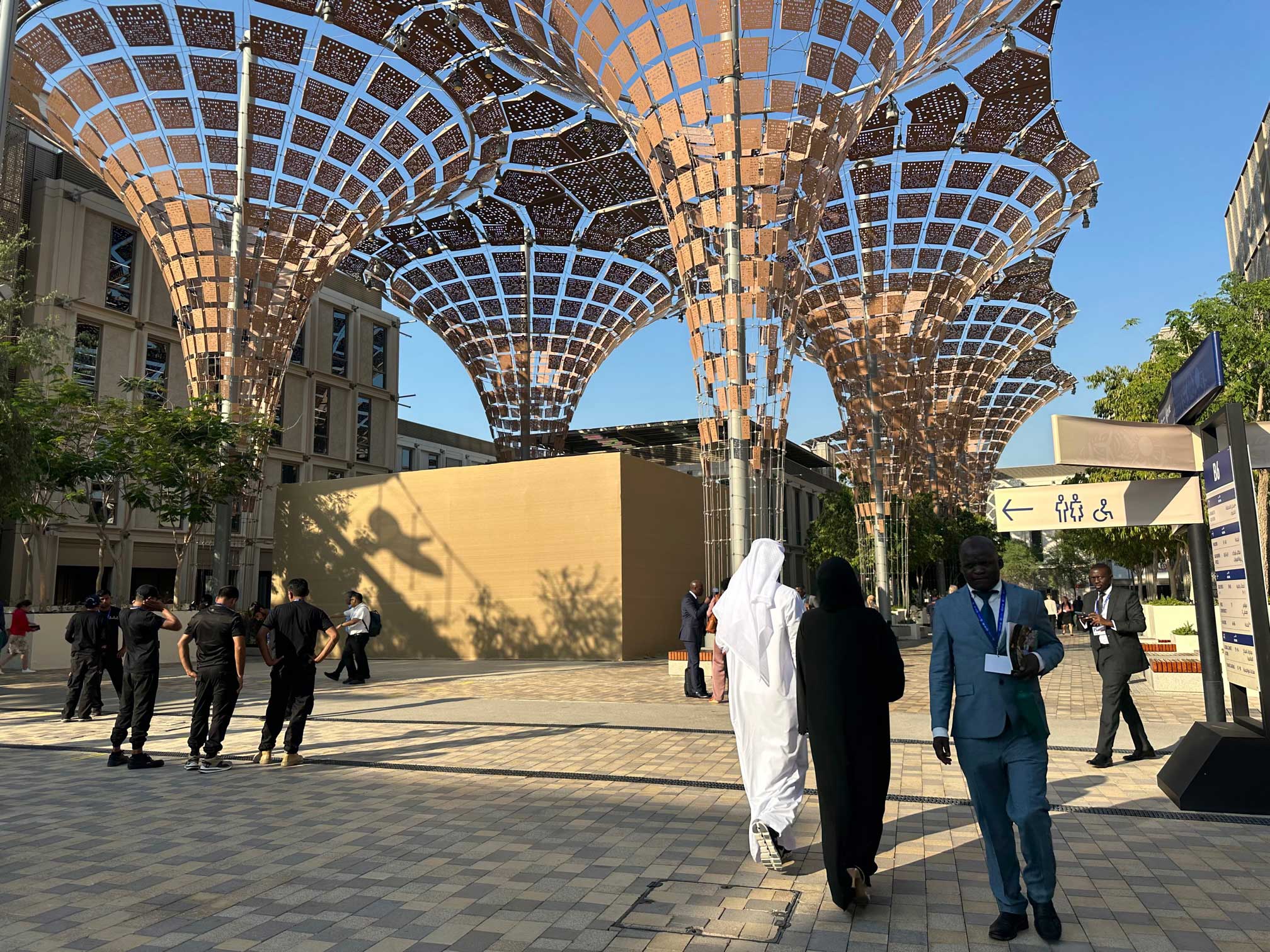COP28: Brazil’s vow to be a “1.5 paladin” an empty pledge
Much like the draft COP28 text that omitted to mention a fossil fuel phase-out, Brazil’s vow to be the “1.5 paladin” is an empty promise.

(Dubai, United Arab Emirate) The stance Brazil has adopted over the two weeks of COP28 is analogous to the one seen in the latest draft of the Global Stocktake, made public on Monday. Much like the text that omits to mention the phasing out of fossil fuels, the country’s vow to be the “1.5 paladin” turned out to be a promise empty of indications over how that will be accomplished.
The country brought the largest delegation in the history of the conference, which after the departure of President Lula da Silva was led for the first time by an Indigenous woman, minister Sonia Guajajara. A couple of days earlier, in an act charged with symbolism, Brazil’s leader gave the floor to the Minister of Environment and Climate Change, Marina Silva, who was responsible for the programme that reduced deforestation in the Amazon by 84% between 2004 and 2012.
Yet, the event that really put the country in the spotlight was receiving the fossil of the day award, an ironic daily “award” given by Climate Action Network to those countries at COP28 who are the best at being the worst and doing the most to do the least on climate change.
“Unfortunately, at this year’s COP, Brazil’s efforts to reduce deforestation in the Amazon were overshadowed by the efforts that the country has made to become the fourth largest oil exporter in the world,” Nicole Oliveira, executive director of the Arayara International Institute, told Gas Outlook.
Brazil recently launched the Ecological Transition Plan and, in less than 12 months, managed to reduce deforestation by more than 20%. It was an important step towards achieving the goals proposed by the NDC, updated in September to rectify the past government’s setbacks.
Yet at the same time, the new Growth Acceleration Program (or PAC, the Portuguese acronym) allocates two thirds of the investment in energy transition to oil and gas. And on the first day of COP28, the Brazilian Minister of Mines and Energy, Alexandre Silveira, announced that the country would be negotiating its entry into OPEC+, an expanded group that brings together the 13 members of the Organization of the Petroleum Exporting Countries (OPEC) and another ten countries.
“For Brazil, it is very difficult to take a position of simply giving up oil exploration, as it is often accompanied by a narrative of income generation, and of its use either on the promotion of energy transition, or on addressing other issues, such as health and education,” explained David Tsai, coordinator of the Greenhouse Gas Emissions and Removals Estimation System at Observatório do Clima, a Brazilian coalition of civil society organizations concerned about the climate crisis.
But for Ricardo Baitelo, project coordinator at the Institute of Energy and Environment, although both the Ministry of Mines and Energy and Brazil’s state-run oil company Petrobrás see in oil a pathway to GDP growth, the reality is that, historically, there are many more examples of states addicted to oil resources than those that actually managed to transform them into social improvements.
“The oil infrastructure Brazil is building is very optimistic. What Petrobrás is doing is a gamble. The company is investing everything now, but the return on this investment remains to be seen”, says Baitelo. He also highlights that with the oil industry’s uncertain peak and subsequent decline the impacts on the economy are still unknown.
Oil, gas auction one day after COP
This, however, did not prevent Brazil from maintaining the auction of 603 oil blocks scheduled for Dec. 13th, one day after the official end of COP28. “In total, more than 2% of the entire national territory is being auctioned, and more than 90% of the blocks somehow fail to comply with the guidelines of the National Petroleum Agency,” says Oliveira.
Among the non-compliances is the overlapping of blocks with different conservation units. According to a study conducted by the Arayara Institute, 23 Indigenous lands were identified that are located in the Area of Direct Influence of 15 blocks, and five quilombola territories, traditional communities formed by formerly enslaved people during Brazil’s colonial times, whose limits are being infringed by 12 exploratory blocks.
“Not only were the people in these territories not consulted, in defiance of Indigenous and Tribal Peoples Convention’s 169 convention, they were not even aware of the situation. We were the ones who, alongside the National Coordination of Quilombos Articulation, took this information to the communities”, says Oliveira. “This is beyond a matter of violating environmental guidelines: they are illegalities. We did not expect this from the current government.”
In addition, according to the institute’s estimates, the total potential emissions from the blocks to be auctioned are greater than a gigaton of carbon, placing them at the same level as Brazil’s annual emissions forecast for 2030, according to the latest update of the country’s NDC.
“Strictly speaking, this auction would not impact compliance with Brazil’s NDC, as this oil would be explored for exportation and the emissions from its burning would not be included in the country’s calculation,” explains Tsai. “But we know that the global environmental damage is the same, regardless of where this emission is counted,” he adds.
Tsai believes that, if no global consensus is achieved, it is unlikely Brazil will assume a domestic commitment. “That is why it is paramount for the climate conference to actually move towards a global commitment to eliminate fossil fuels,” he says.
Brazil defended the elimination of fossil fuels in the controversial COP28 draft text released on Monday and said that rich countries should lead the process.
